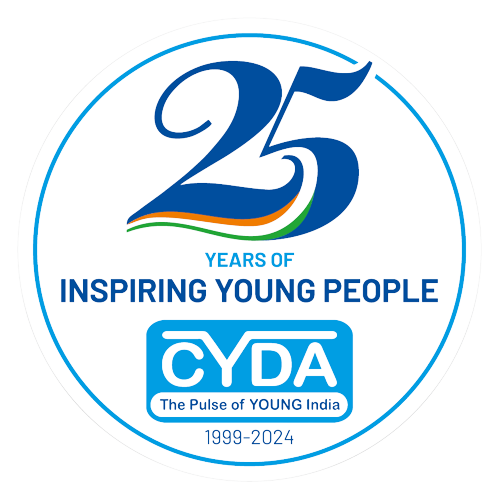Adolescents Development Program
Empowering Young Minds: The Adolescent Support Program at CYDA
CYDA’s Adolescent Program aims to provide a supportive atmosphere in which adolescents can flourish. Our focus is empowering adolescents from disadvantaged backgrounds in urban and rural communities to reach their full academic potential. We also address challenges like limited parental support, unsupportive school environments, and low learning interest. Gender equality is also a central priority, aiming to bridge the gap in girls’ participation in STEM fields.
Components of the Adolescent Program
1. Community Resource Centers (CRCs)
Community Resource Centers provide crucial support to students falling behind. We offer

• Remedial Education:
Personalized instruction to help students catch up with their peers, leading to impressive results like 100% pass rates in SSC exams for some CRCs.
• Spoken English Classes:
Equipping students with enhanced communication skills.
• Career Guidance:
Exposing students to diverse career paths through informative talks.
• Parents' Meetings:
Ensuring parental involvement for regular school attendance.
• Digital Literacy:
Training students to navigate the digital world confidently, a key skill in the 21st century.
• TARANG Life Skills:
Interactive sessions focusing on critical thinking, problem-solving, communication, emotional management, sexual and reproductive health rights, and gender equality. This empowers youth to handle personal and professional challenges while promoting gender equity, as evidenced by student-led awareness rallies.
• Extracurricular Activities:
Utilizing fun and educational games to develop social, ethical, and cognitive skills, fostering a more engaging learning environment.




2. STEM Education for Adolescents
Recognizing the growing importance of STEM skills in the 21st Century, CYDA works with schools and communities to make STEM education accessible, particularly for girls. CYDA offer hands-on learning experiences to enhance analytical and problem-solving skills. Here are some impactful initiatives:

• STEM Activities with Students:
Over 6,800 students participated in engaging STEM activities across schools. Encouraging computational thinking through a competition, with impressive results like 200 champions participating and national winners emerging. Broadening students’ understanding of space science.
• Career Guidance:
Guiding students towards STEM careers.
• Teacher Training:
Empowering teachers with innovative methods to make STEM learning fun and interactive.
• Celebration of STEM Days:
Enhancing STEM knowledge through themed days celebrating engineering, the moon, and the ozone layer.
• STEM Exposure Visits:
Connecting classroom concepts with real-world applications through educational visits for 231 students.
• Academic Improvement:
73% of students showed improved performance in Science and Mathematics through active participation in STEM projects.



3. Bridging the Learning Gaps Among Primary School Children
Responding to the learning setbacks caused by the pandemic shift to virtual learning, CYDA initiated the “Bridging the Learning Gaps” project. This project focuses on strengthening foundational literacy and numeracy in Marathi, English, and Mathematics for students in Grades 1 to 4.

• Pre and Post Assessment:
The project has benefitted over 10,350 students, with impressive outcomes. Assessments showed an average of 87% to 93% of students demonstrating improved learning in core subjects. This enhanced academic achievements and boosted student confidence.
• Parent Awareness:
Building parental involvement through SMC meetings, home visits, and awareness sessions, with over 2,300 parents participating.
• Teacher Capacity Building:
Comprehensive teacher training programs for skill enhancement and motivation.
• Child-Friendly Learning Modules:
Providing engaging learning modules and teaching-learning materials across schools.
• FLN Activities with Students:
Over 10,350 students benefitted from FLN activities based on modules, clarifying concepts, and building strong foundational skills.





4. Ensuring a Healthy and Supportive Learning Environment in Schools
The WASH Unit at CYDA prioritises a healthy learning environment by promoting proper sanitation and hygiene practices in schools and communities.

• WASH in Schools:
This program provides clean drinking water, functional toilets, handwashing stations, and hygiene education. It also promotes Menstrual Hygiene Management (MHM) to ensure a comfortable school experience for girls.
• WASH Mitra:
This initiative trains entrepreneurs (WASH Mitras) to maintain WASH facilities, ensuring sustainability effectively.
• WASH in Communities:
This program focuses on improving access to safe drinking water, proper sanitation facilities, and hygiene practices in residential areas. It promotes handwashing, safe water storage, and good sanitation practices to prevent waterborne diseases and improve overall health.






